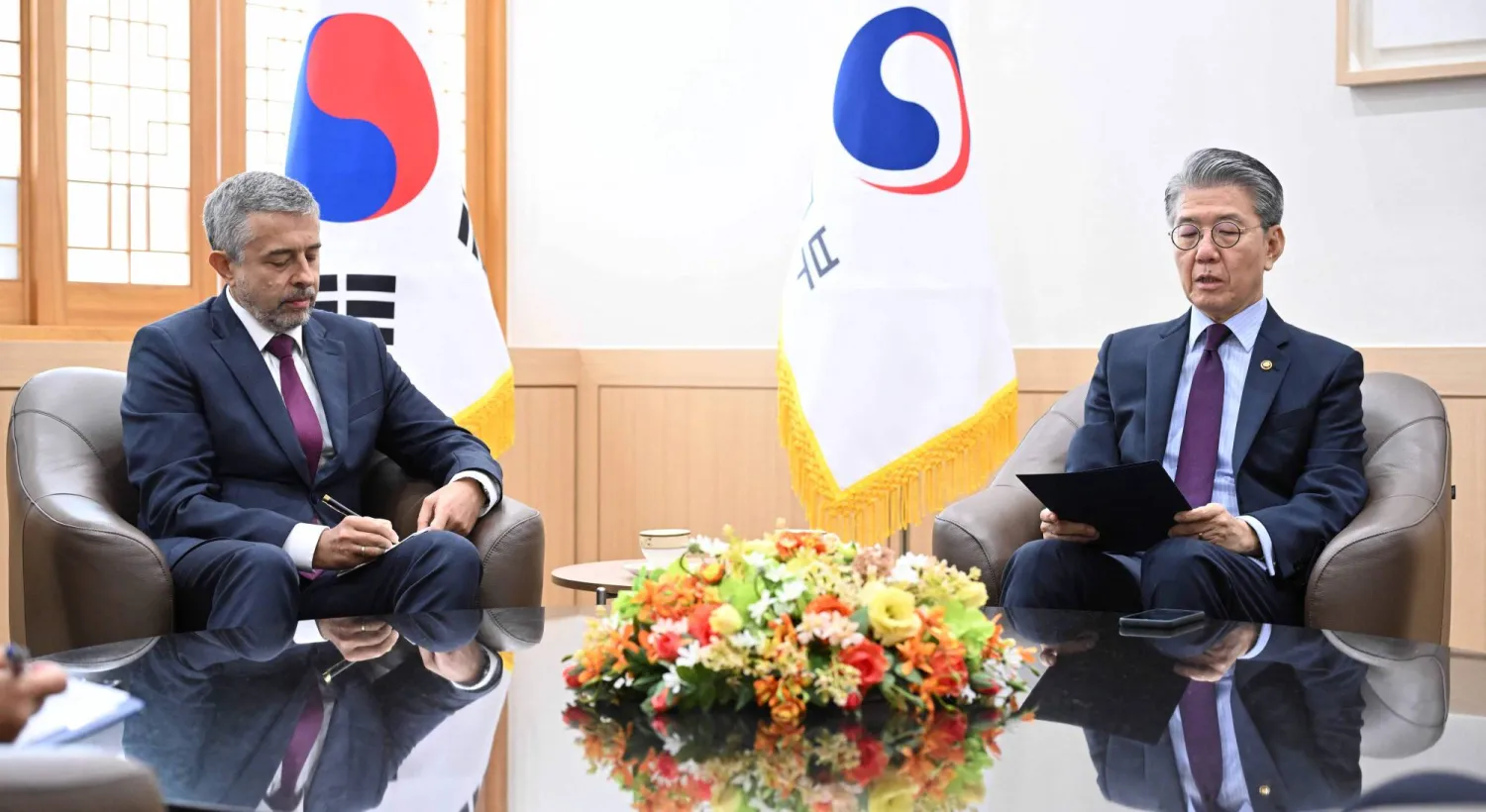South Korea's foreign ministry summoned on Monday the Russian ambassador in Seoul in protest over what it has called the dispatch of North Korean troops to Russia for deployment in Ukraine and pledged a joint international response, Reuters said.
South Korea's first vice foreign minister Kim Hong-kyun called in Georgy Zinoviev, the top Russian envoy to Seoul, and urged the immediate withdrawal of North Korean soldiers from Russia, the ministry said in a statement.
Kim said the participation of North Korean troops in the war in Ukraine violated UN resolutions and the UN charter and posed serious threats to the security of South Korea and beyond.
"We condemn North Korea's illegal military cooperation, including its dispatch of troops to Russia, in the strongest terms," the ministry quoted Kim as saying.
"We will respond jointly with the international community by mobilizing all available means against acts that threaten our core security interests."
Phone calls to the Russian embassy went unanswered. The ministry said Zinoviev told Kim that he would relay the message to Moscow.
South Korea's spy agency said last week that North Korea had shipped 1,500 special forces troops to Russia's Far East for training and acclimatizing at local military bases and they will likely be deployed for combat in the war in Ukraine.
Ukraine's President Volodymyr Zelenskiy has accused Pyongyang of preparing to send 10,000 soldiers to Russia, and on Sunday called for strong reaction from countries that have acknowledged North Korea's increasing involvement in the war in Ukraine.
The White House National Security Council could not confirm reports that North Korean troops were fighting for Russia, a spokesperson said on Friday, but added if true, "this would mark a dangerous development in Russia's war against Ukraine".
US Defense Secretary Lloyd Austin and NATO chief Mark Rutte also said last week that there was no evidence of Pyongyang's presence at this stage.
South Korea's defense ministry on Monday said Seoul had consulted Washington ahead of the spy agency's announcement, and condemned what it called the North's illegal involvement in Ukraine and urged an immediate halt.
Both Russia and North Korea have denied arms transfers but have pledged to boost military ties, signing a mutual defense treaty at a summit in June.
The Kremlin has also dismissed South Korean assertions that North Korea may have sent some military personnel to help Russia against Ukraine.
South Korea Summons Russian Envoy to Protest North Korea Troop Dispatch

This handout photo taken and released on October 21, 2024 by the South Korean Foreign Ministry shows South Korean Vice Foreign Minister Kim Hong-kyun (R) speaking to Russian ambassador to South Korea Georgy Zinoviev (L) at the Foreign Ministry in Seoul after South Korea summoned the Russian ambassador. (Photo by Handout / South Korean Foreign Ministry / AFP)

South Korea Summons Russian Envoy to Protest North Korea Troop Dispatch

This handout photo taken and released on October 21, 2024 by the South Korean Foreign Ministry shows South Korean Vice Foreign Minister Kim Hong-kyun (R) speaking to Russian ambassador to South Korea Georgy Zinoviev (L) at the Foreign Ministry in Seoul after South Korea summoned the Russian ambassador. (Photo by Handout / South Korean Foreign Ministry / AFP)
لم تشترك بعد
انشئ حساباً خاصاً بك لتحصل على أخبار مخصصة لك ولتتمتع بخاصية حفظ المقالات وتتلقى نشراتنا البريدية المتنوعة







